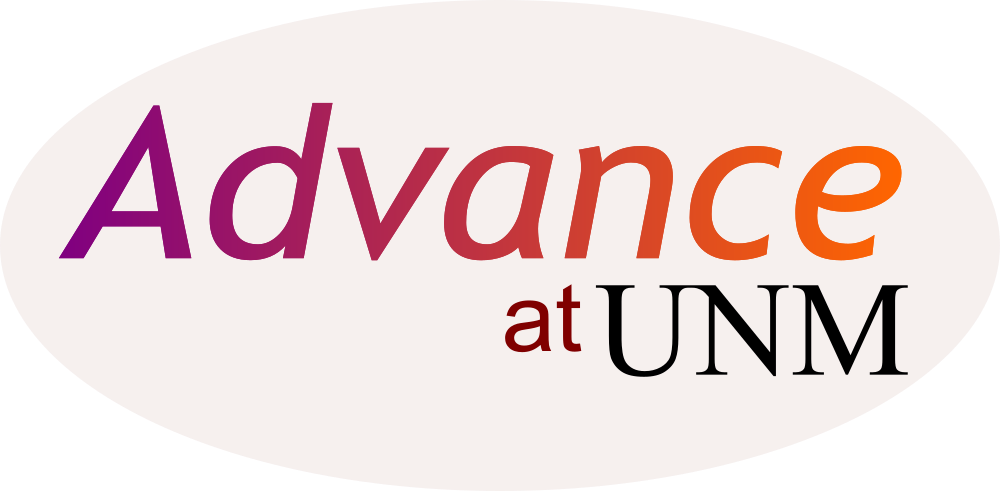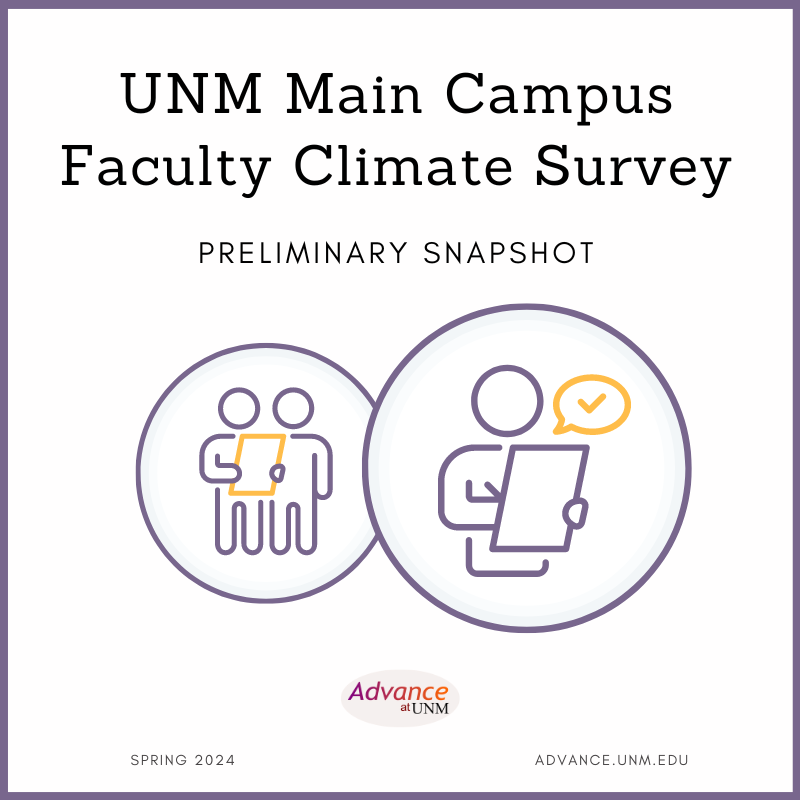Faculty experiences with UNM campus climate mixed, according to new Advance survey
Fall 2023 survey finds faculty are engaged with the work they do, but struggling with well-being and inequities
A new survey by Advance at UNM finds that full-time, main campus faculty report a complex mix of organizational experiences and attitudes.
The fall 2023 survey found, for example, high levels of work and teaching well-being among faculty, but low levels of physical and psychological well-being.
The survey also found that faculty remained engaged with their work tasks despite ongoing challenges presented by the COVID-19 pandemic, and that faculty generally felt supported during the promotion and tenure process.
The work builds on surveys from 2020 and 2022 and continues to ask questions about faculty well-being and caregiving responsibilities. Since 2016, Advance at UNM has surveyed faculty as part of its ongoing effort to understand and improve campus climate. Like past surveys, the most recent study has prompted a series of recommendations, some of which UNM leadership are already working on.
283 faculty members responded to the 2023 survey, which covered multiple facets of organizational climate, including climate for work-family policy use; promotion and tenure; workload equity; bias; perceptions of leadership; work-life balance; work attitudes; and facets of well-being including physical, psychological, occupational.
“Faculty were well-represented across numerous groups, including race/ethnicity, gender identity, sexual orientation, and colleges/schools. Survey participation percentages largely reflected faculty representation on UNM’s main campus,” said Lisa Marchiondo, an associate professor of management who led the survey.
While some of the results tracked with previous surveys, others were more surprising.
“We’re pleased to see that faculty generally report a good work-life balance and support for promotion and tenure. We’re concerned about the high stress levels reported by parents and adult caregivers and that associate professors are generally doing less well than faculty in other ranks,” said Julia Fulghum, director of Advance at UNM.
The findings include:
– Tenure standards were generally perceived as clear, reasonable, and equitable.
– Climate for the use of work-family policies was positive overall.
– Bias in academia was reported as common.
– Nearly half of faculty reported inequitable workloads.
– Faculty trusted their chairs the most, followed by colleagues, UA-UNM, college/school-level leaders (deans), upper administration, and then, regents.
– Adult caregivers reported similar stress but lower organizational support than caregivers of children.
– Hybrid and remote work benefitted 44 percent of faculty, particularly when it came to tasks like scholarship requiring concentration. Flexible work locations most benefited faculty from underrepresented groups, including URM and women faculty.
– Faculty tended to report high job satisfaction and low disengagement. However, turnover intentions and exhaustion had potentially troubling results, warranting attention.
– The majority of faculty reported good well-being pertaining to their teaching and scholarship. However, over 40 percent of faculty reported poor physical and psychological well-being.
– Recent national and international events, including the pandemic, wars, and race-based movements, significantly affected more than 42 percent and moderately affected more than 32 percent of faculty.
Below are some preliminary charts from the study. Download the preview report.
The Advance at UNM leadership team, in collaboration with the Office of Academic Affairs, Human Resources, and the Office for the Vice President of Research is developing recommendations based on survey responses. The recommendations will take into consideration differences between groups of respondents.
Some of the recommendation topics include minimizing challenges for faculty caregivers of children and adults. They also include boosting support during the promotion and tenure process, developing additional resources and opportunities for associate professors, and helping department chairs be successful leaders.
“We are looking forward to working with leaders on campus to identify short and long-term priorities and actions that will support both faculty and staff. The survey results provide some important guidance on where to focus,” Fulghum said.
The complete survey report and recommendations will be released in fall 2024.
The complete report will be prepared by Fulghum, Marchiondo, Director of CASAA and Distinguished Professor of Psychology Katie Witkiewitz, and Psychology Doctoral Students Autumn Sutherland and Hayley VanderJagt, with feedback from the Advance leadership team and the UNM FIRST evaluation core team.
2023 Climate Report Preview 05.07.24

